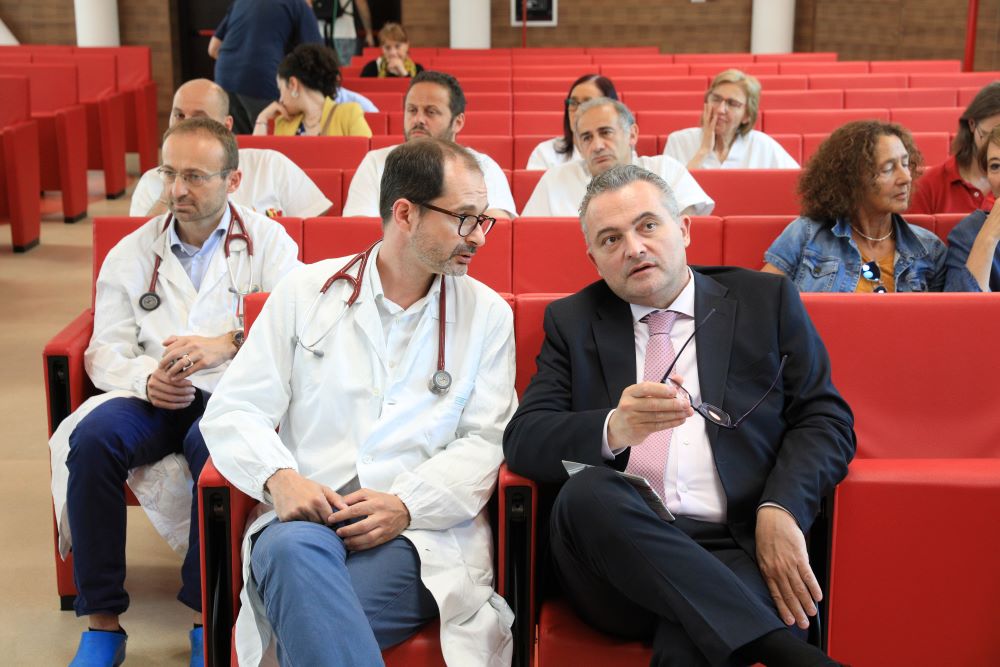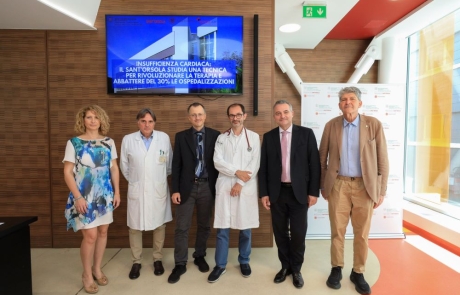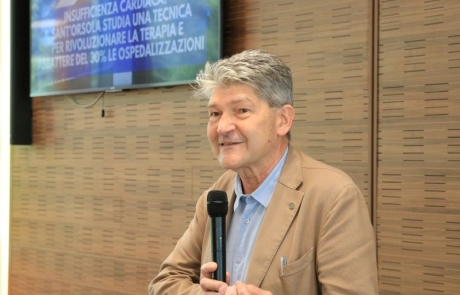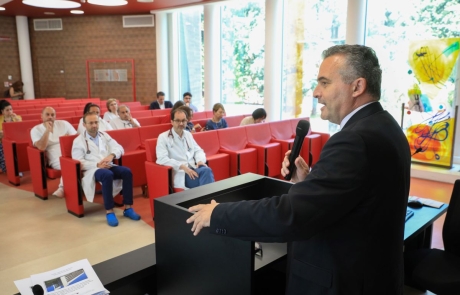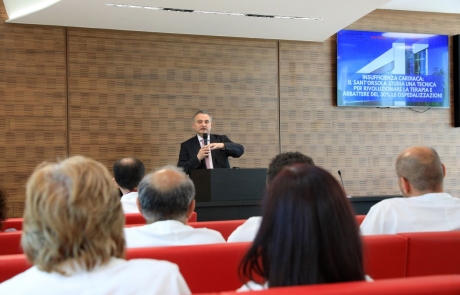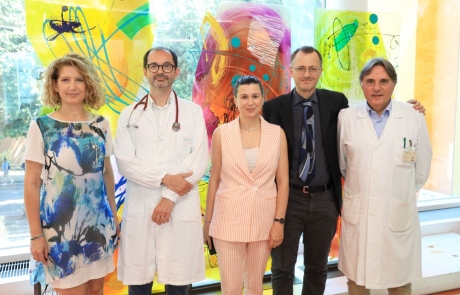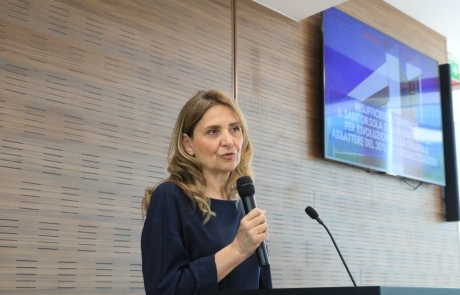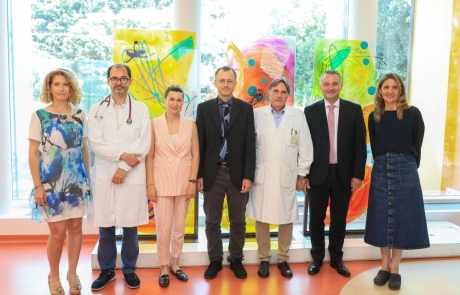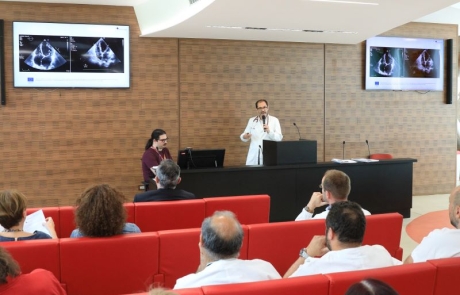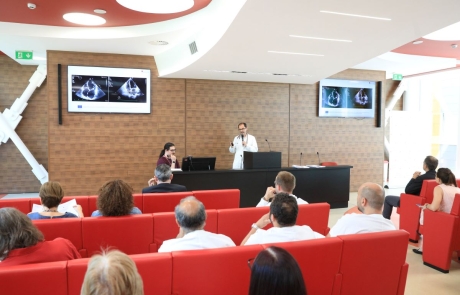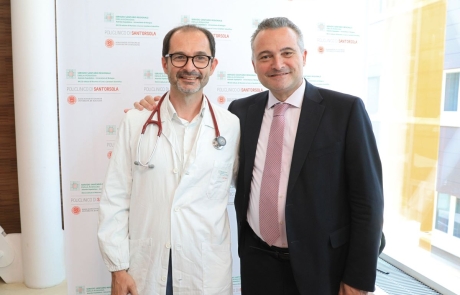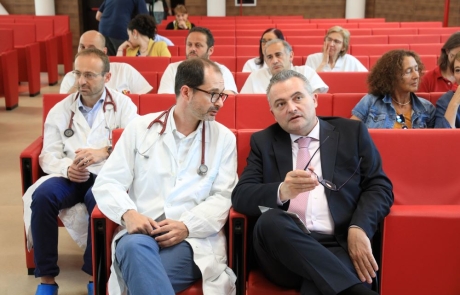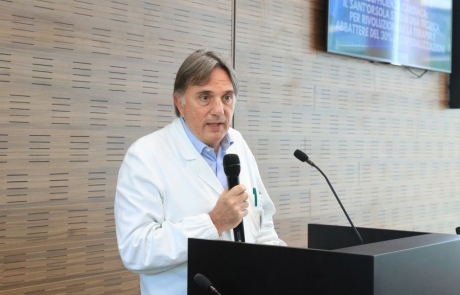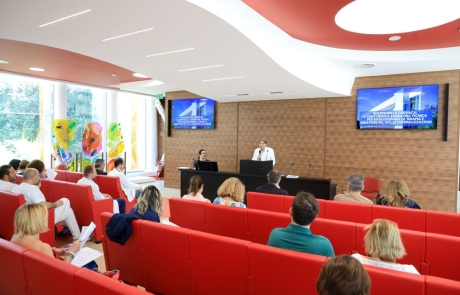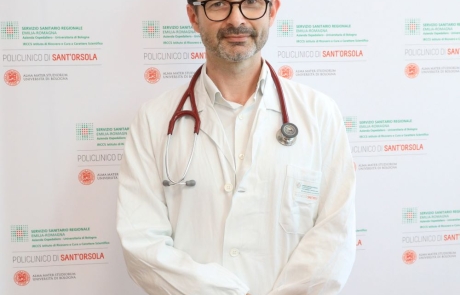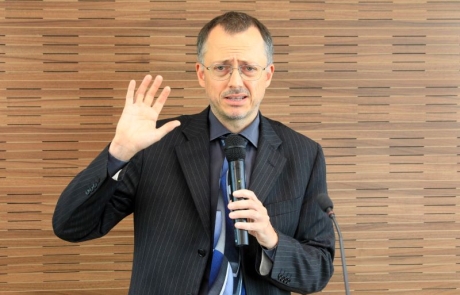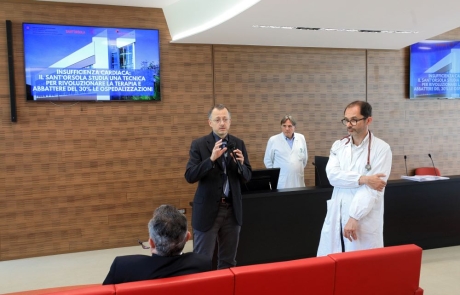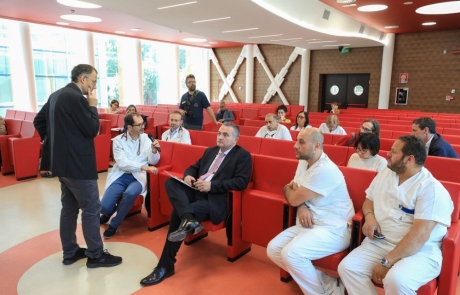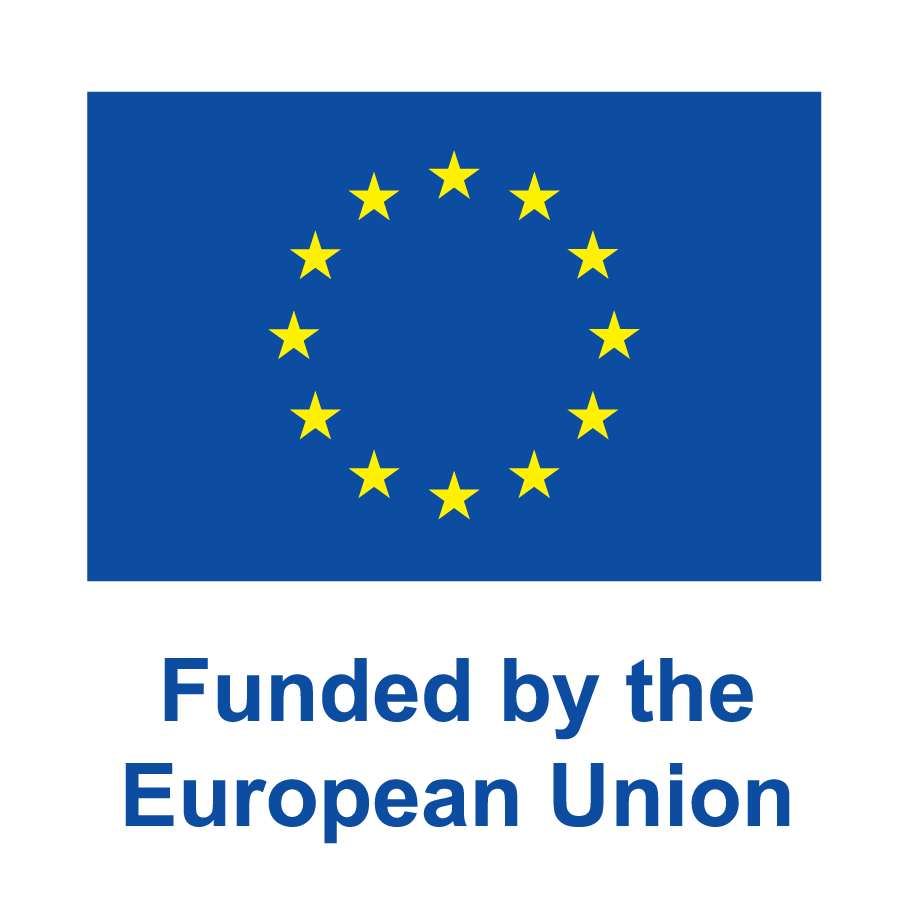28 June 2024
On June 28, 2024, the press conference for the BIOTOOL-CHF project took place at the IRCCS Policlinico di Sant’Orsola, Bologna. The event was attended by journalists from local and national newspapers and TV stations, besides to BIOTOOL-CHF Project partners such as Warrant Hub.
Speakers at the event included:
- Raffaele Donini, Regional Minister for Health Policies of Emilia-Romagna
- Chiara Gibertoni, General Director of IRCCS Policlinico di Sant’Orsola
- Luciano Potena, Director of the Heart Failure and Transplant Unit and Project Coordinator
- Gianandrea Pasquinelli, Director of DIMEC at the University of Bologna
- Marco Seri, Scientific Director of IRCCS Policlinico di Sant’Orsola
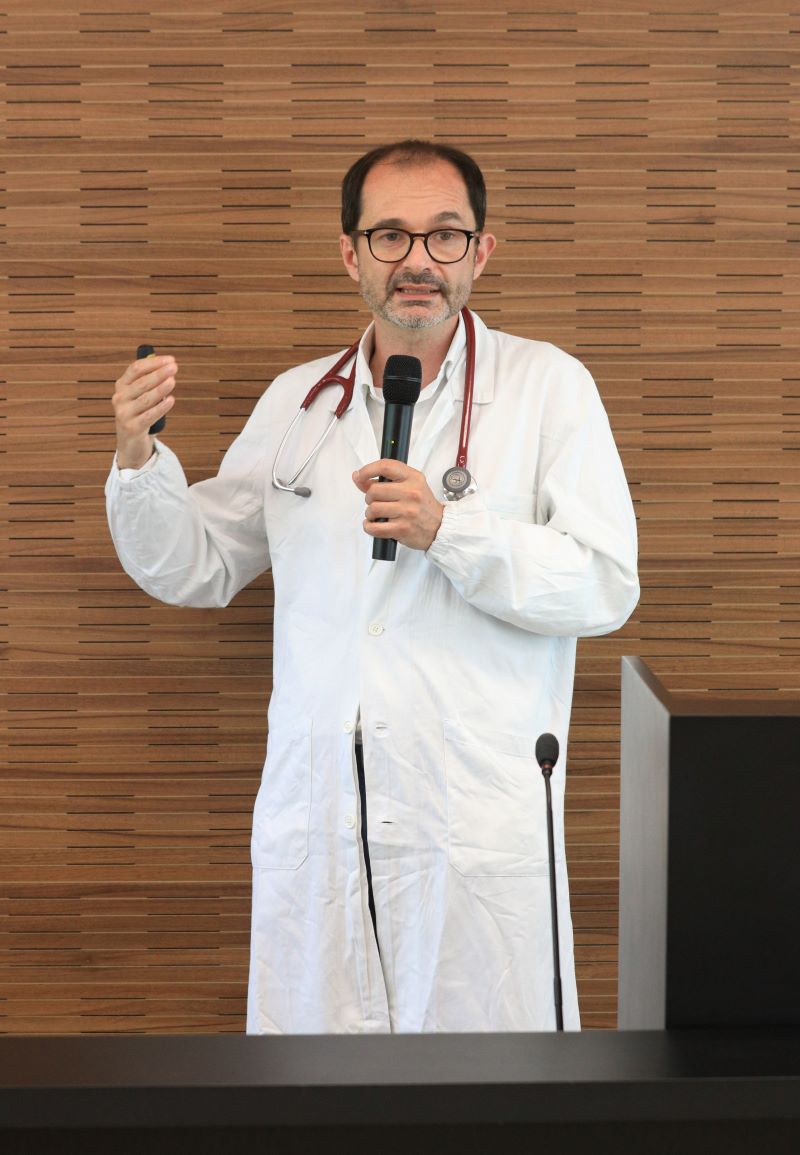
The BIOTOOL-CHF project was presented by our coordinator, Dr. Luciano Potena, who emphasized the innovative nature of this initiative aimed at reducing heart failure hospitalizations by one-third. Heart failure is currently the leading cause of hospital admissions among adults. In Emilia-Romagna alone, nearly 14,000 hospitalizations were recorded last year due to this condition, accounting for 10% of all regional hospital admissions.
Chiara Gibertoni stated, “This is a project that looks beyond the hospital.”
Igor Diemberger added, “This project develops something concrete.”
Raffaele Donini commented, “All of Europe is represented in this project. Research is global, and we must increasingly measure ourselves on this international level.”
The BIOTOOL-CHF project aims to personalize the treatment of heart failure through an artificial intelligence-based algorithm that integrates clinical data with biomarker indications. Coordinated by the Azienda Ospedaliero Universitaria di Bologna – IRCCS Policlinico Sant’Orsola and funded by the European Commission’s Horizon Europe program with a contribution of €9.6 million, the project’s ultimate goal is to reduce heart failure hospitalizations by 30%, which are currently the leading cause of hospital admissions among adults.
Raffaele Donini described BIOTOOL-CHF as “truly innovative and strategically valuable,” highlighting that the use of AI will guide this €10 million European project, helping heart failure patients predict their clinical path and reduce hospitalizations by 30%, thereby significantly cutting costs. Luciano Potena explained, “We will have software where we will input a range of clinical and demographic information about the patient, along with biochemical data from standard lab analyses and biomarkers. All this data, through AI, should give us a clearer picture of the patient’s actual condition and how to manage diuretic therapy. As we know, congestion and fluid retention are the main factors leading heart failure patients to hospitalization.”
The BIOTOOL-CHF project represents a significant advancement in the field of heart failure management, aiming to improve patient outcomes and reduce the burden on healthcare systems.
